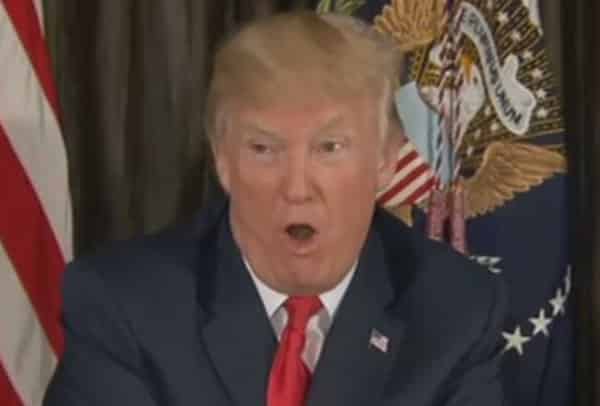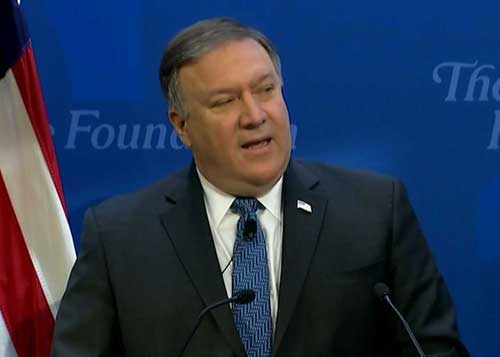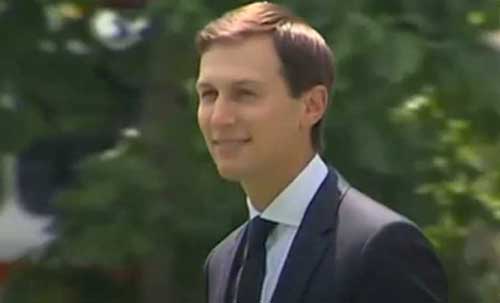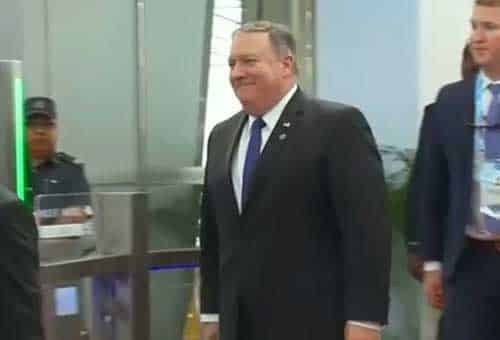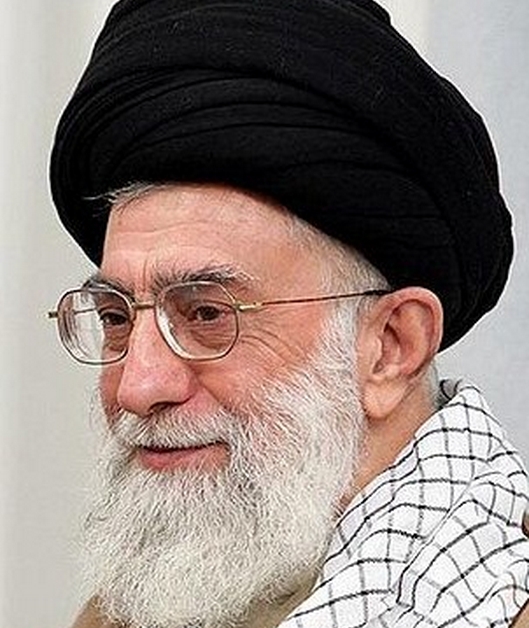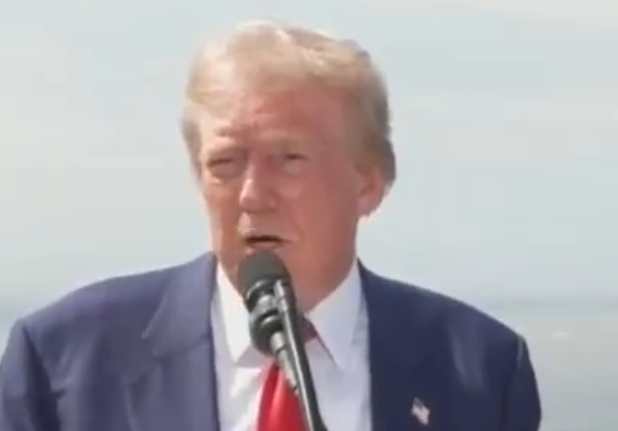U.S. Secretary of State Mike Pompeo said Thursday that he expected every nation to comply with a U.N. Security Council resolution regarding a “snapback” of sanctions on Iran.
“The United States is intent on enforcing all the U.N. Security Council resolutions, and come Monday, there will be a new series of U.N. Security Council resolutions to be in force, and we intend to ask every country to stand behind them,” he said during a joint press conference with Suriname President Chandrikapersad “Chan” Santokhi in Paramaribo.
He said the U.S. expected every nation to behave in a way consistent with what the United Nations mandates, adding that it was “simple” and “straightforward what our expectations are.”
The United States has vowed to assert the “snapback” of all prior international sanctions on Iran, effective at 8 p.m. EDT Saturday, with more announcements to be made this weekend and next week as to exactly how Washington is planning to enforce the “returned U.N. sanctions.”
“We will return to the United Nations to reimpose sanctions so that the arms embargo will become permanent next week,” Pompeo said Wednesday during a joint press conference with British Foreign Secretary Dominic Raab.
‘We absolutely agree’
“I think we absolutely agree that Iran must never be — never be allowed to obtain a nuclear weapon,” Raab said. “We also, I think, share the view that the diplomatic door is open to Iran to negotiate a peaceful way forward. That decision, that choice is there for the leadership in Tehran to take.” He stopped short of saying whether and how Britain would implement the snapback sanctions.
Britain, France and Germany, the so-called E3, said in August that they could not support the U.S. move to restore U.N. sanctions on Iran, saying the action was incompatible with efforts to support the Iran nuclear deal, known formally as the Joint Comprehensive Plan of Action (JCPOA).
Under the JCPOA concluded on July 14, 2015, the five permanent U.N. Security Council members plus Germany agreed with Iran to gradually lift international sanctions in return for limits on Tehran’s nuclear activities, to prevent it from making a nuclear bomb. It also opened Iran’s markets back up to many foreign investors.
[content id=”79272″]
The United States withdrew from the deal in May 2018, reimposing unilateral sanctions on Iran. In response, Tehran resumed some of its nuclear activities, and in July 2019 it breached the deal by exceeding limits on both uranium enrichment and stockpile levels. Iran denies that its nuclear activities are for military purposes.
On Wednesday, U.S. special envoy for Iran and Venezuela Elliott Abrams told reporters it “remains to be seen” if E3 countries will ignore U.N. sanctions.
He added the E3 and other European countries had told Washington that they didn’t want the Iran arms embargo to end, but they were unable to take any action that kept the U.N. arms embargo in place.
What sanctions entail
Abrams said the returned sanctions included “a ban on Iran engaging in enrichment and reprocessing-related activities, the prohibition on ballistic missile testing and development, and sanctions on the transfer of nuclear and missile-related technologies to Iran.”
U.S. officials warn that freeing Iran from restrictions will lead to further regional destabilization, intensified conflicts and a regional arms race.
The U.S. tried but failed on August 14 to extend an expiring arms embargo against Iran through a resolution at the U.N. Security Council.
The embargo against the sale or transfer to or from Iran of conventional weapons is set to expire on October 18, under the JCPOA.
With the extension blocked, Washington saw triggering a snapback of U.N. sanctions under Security Council Resolution 2231, which implemented the Iran nuclear agreement, as the only path for restoring the arms embargo.
Source: VOA

